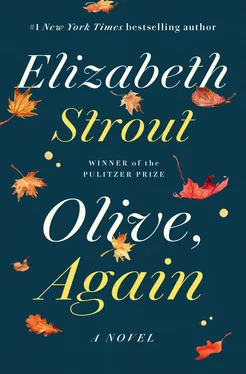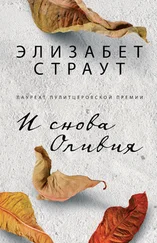His own affair with Elaine Croft had not started until he’d been married for twenty-five years. The urgency he and Elaine had felt; God, it was something. It was terrible. Had Betsy felt that? Not possible, Betsy was not an urgent woman. But how did he know what kind of woman she was?
“Hey, Cassie,” Jack said, “your mother was a slut.”
But he knew, even as he said this, that it was not true. Cassie’s mother had been— Well, she was kind of a slut, for Christ’s sake, if she was off doing Groger in a hotel in Boston and in New York and Cassie was just a little kid, but Betsy had been a wonderful mother, that was the truth. Jack shook his head. Now he suddenly felt drunk. He also knew he would never, ever tell Cassie, he would let her have her mother as she had been: a saint who put up with a homophobic father, a self-absorbed asshole.
“Okay,” said Jack. “Okay.”
He sat back at his computer. He retrieved the message from Trash, read it one more time, then wrote—being very careful of spelling so it would not sound drunk—Hello, Tom. Yes, I do know of your meetings with her. This is why I thought you would want to know of her death. He sent it, then he shut the computer off.
He stood up and went and sat in his armchair for a long time. He thought once again of the ants he had seen today while that awful Fish-Eyes man had him against the car, those ants. Just doing what they were meant to do, live until they died, so indiscriminately by Jack’s car. He really could not stop thinking of them. Jack Kennison, who had studied human behavior from the medieval times, then the Austro-Hungarian times of Archduke Franz Ferdinand being killed and everyone in Europe blowing each other up as a result—Jack was thinking about those ants.
Then he thought how tomorrow was Sunday and how long a day that would be.
And then he thought—as though a kaleidoscope of colors swam past him—about his own life, as it had been and as it was now, and he said out loud, “You’re not much, Jack Kennison.” This surprised him, but he felt it to be true. Who had just said that, about not being much? Olive Kitteridge. She had said it regarding some woman in town. “She’s not much,” Olive had said, and there was the woman, gone, dismissed.
Eventually Jack got out a piece of paper and wrote in pen, Dear Olive Kitteridge, I have missed you, and if you would see fit to call me or email me or see me, I would like that very much. He signed it and stuck it into an envelope. He didn’t lick it closed. He would decide in the morning whether to mail it or not.
Two days earlier, Olive Kitteridge had delivered a baby.
She had delivered the baby in the backseat of her car; her car had been parked on the front lawn of Marlene Bonney’s house. Marlene was having a baby shower for her daughter, and Olive had not wanted to park behind the other cars lined up on the dirt road. She had been afraid that someone might park behind her and she wouldn’t be able to get out; Olive liked to get out. So she had parked her car on the front lawn of the house, and a good thing she had, that foolish girl—her name was Ashley and she had bright blond hair, she was a friend of Marlene’s daughter—had gone into labor, and Olive knew it before anyone else did; they were all sitting around the living room on folding chairs and she had seen Ashley, who sat next to her, and who was enormously pregnant, wearing a red stretch top to accentuate this pregnancy, leave the room, and Olive just knew.
She’d gotten up and found the girl in the kitchen, leaning over the sink, saying, “Oh God, oh God,” and Olive had said to her, “You’re in labor,” and the idiot child had said, “I think I am. But I’m not due for another week.”
Stupid child.
And a stupid baby shower. Olive, thinking of this as she sat in her own living room, looking out over the water, could not, even now, believe what a stupid baby shower that had been. She said out loud, “Stupid, stupid, stupid, stupid.” And then she got up and went into her kitchen and sat down there. “God,” she said.
She rocked her foot up and down.
The big wristwatch of her dead husband, Henry, which she wore, and had worn since his stroke four years ago, said it was four o’clock. “All right then,” she said. And she got her jacket—it was June, but not warm today—and her big black handbag and she went and got into her car—which had that gunky stuff still left on the backseat from that foolish girl, although Olive had tried to clean it as best she could—and she drove to Libby’s, where she bought a lobster roll, and then she drove down to the Point and sat in her car there and ate the lobster roll, looking out at Halfway Rock.
A man in a pickup truck was parked nearby, and Olive waved through her window to him but he did not wave back. “Phooey to you,” she said, and a small piece of lobster meat landed on her jacket. “Oh, hell’s bells, ” she said, because the mayonnaise had gotten into the jacket—she could see a tiny dark spot—and would spoil the jacket if she didn’t get it to hot water fast. The jacket was new, she had made it yesterday, sewing the pieces of quilted blue-and-white swirling fabric on her old machine, being sure to make it long enough to go over her hind end.
Agitation ripped through her.
The man in the pickup truck was talking on a cellphone, and he suddenly laughed; she could see him throwing his head back, could even see his teeth as he opened his mouth in his laughter. Then he started his truck and backed it up, still talking on his cellphone, and Olive was alone with the bay spread out before her, the sunlight glinting over the water, the trees on the small island standing at attention; the rocks were wet, the tide was going out. She heard the small sounds of her chewing, and a loneliness that was profound assailed her.
It was Jack Kennison. She knew this is what she had been thinking of, that horrible old rich flub-dub of a man she had seen for a number of weeks this spring. She had liked him. She had even lain down on his bed with him one day, a month ago now, right next to him, could hear his heart beating as her head lay upon his chest. And she had felt such a rush of relief—and then fear had rumbled through her. Olive did not like fear.
And so after a while she had sat up and he had said, “Stay, Olive.” But she did not stay. “Call me,” he had said. “I would like it if you called me.” She had not called. He could call her if he wanted to. And he had not called. But she had bumped into him soon after, in the grocery store, and told him about her son who was going to have another baby any day down in New York City, and Jack had been nice about that, but he had not suggested she come see him again, and then she saw him later (he had not seen her) in the same store, talking to that stupid widow Bertha Babcock, who for all Olive knew was a Republican like Jack was, and maybe he preferred that stupid woman to Olive. Who knew? He had sent one email with a bunch of question marks in the subject line and nothing more. That was an email? Olive didn’t think so.
“Phooey to you,” she said now, and finished her lobster roll. She rolled up the paper it had come in and tossed it onto the backseat, where that mess still showed in a stain from that idiot girl.
“I delivered a baby today,” she had told her son on the telephone.
Silence.
“Did you hear me?” Olive asked. “I said I delivered a baby today.”
“Where?” His voice sounded wary.
“In my car outside Marlene Bonney’s house. There was a girl—” And she told him the story.
Читать дальше













